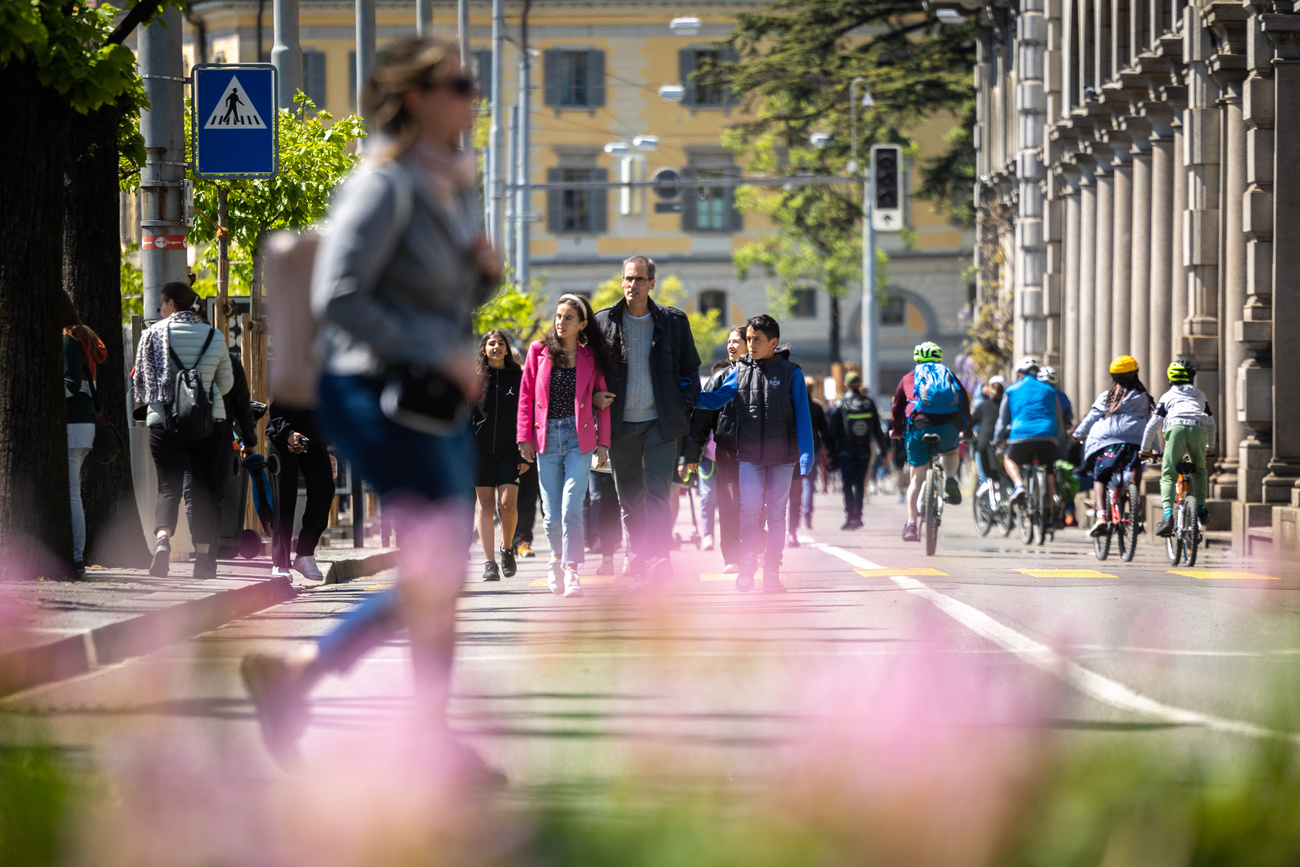
Swiss government rejects initiative to cap population

On Friday, the government outlined its arguments against a proposal by the Swiss People’s Party to limit the population to 10 million.
+ Get the most important news from Switzerland in your inbox
The limit would damage prosperity, economic growth and security in Switzerland, the Federal Council said in a statement on Friday and recommended that lawmakers and voters should turn down the idea.
The right-wing Swiss People’s Party – which in last elections reached almost a third of seats in the lower house with an anti-immigration stance – wants to cap the population to a maximum of 10 million. Its initiative says that “uncontrolled immigration” is overwhelming the country’s infrastructure and pushing up rents. The group collected more than 114,000 signatures for a limit, passing the bar for a plebiscite under Switzerland’s system of direct democracy.

More
The Swiss political system
Switzerland’s population reached 9.03 million people as of September 2024. Most immigrants come to work for high Swiss wages, as local companies are largely unable to satisfy their labour needs domestically.
If the 10 million threshold is neared, the People’s Party – which has a track record on anti-foreigner initiatives – proposes curbing population growth by limiting immigration, especially from asylum seekers. Still, the plan would also shut out highly qualified newcomers.
Business lobby economiesuisse has criticised the idea, saying the economy would suffer if companies couldn’t easily hire foreign workers. The government has acknowledged and stressed that Switzerland depends on worker supply from abroad.
“To permanently restrict immigration, Switzerland would have to take measures that would be detrimental to its prosperity and incompatible with Switzerland’s international obligations,” the governing Federal Council said on Friday.

More
How countries are managing immigration between economic needs and social tensions
The executive highlighted that strict curbs on the number of newcomers would threaten a treaty on the free movement of people Switzerland has with the European Union (EU). The government in December reached a new deal with the EU, which grants the Swiss a safeguard clause to limit immigration in certain cases, while securing a supply of workers.
“The Federal Council recognises that immigration and population growth come with challenges,” it said. “Nevertheless, Swiss companies will continue to depend on foreign workers in order to remain competitive and innovative.”
The initiative now goes to parliament, where lawmakers have more than a year to debate the issue. No date has yet been set for the national vote.

In compliance with the JTI standards
More: SWI swissinfo.ch certified by the Journalism Trust Initiative






























You can find an overview of ongoing debates with our journalists here . Please join us!
If you want to start a conversation about a topic raised in this article or want to report factual errors, email us at english@swissinfo.ch.